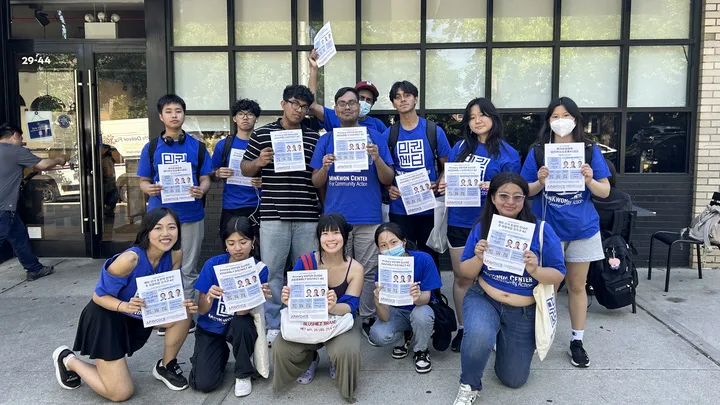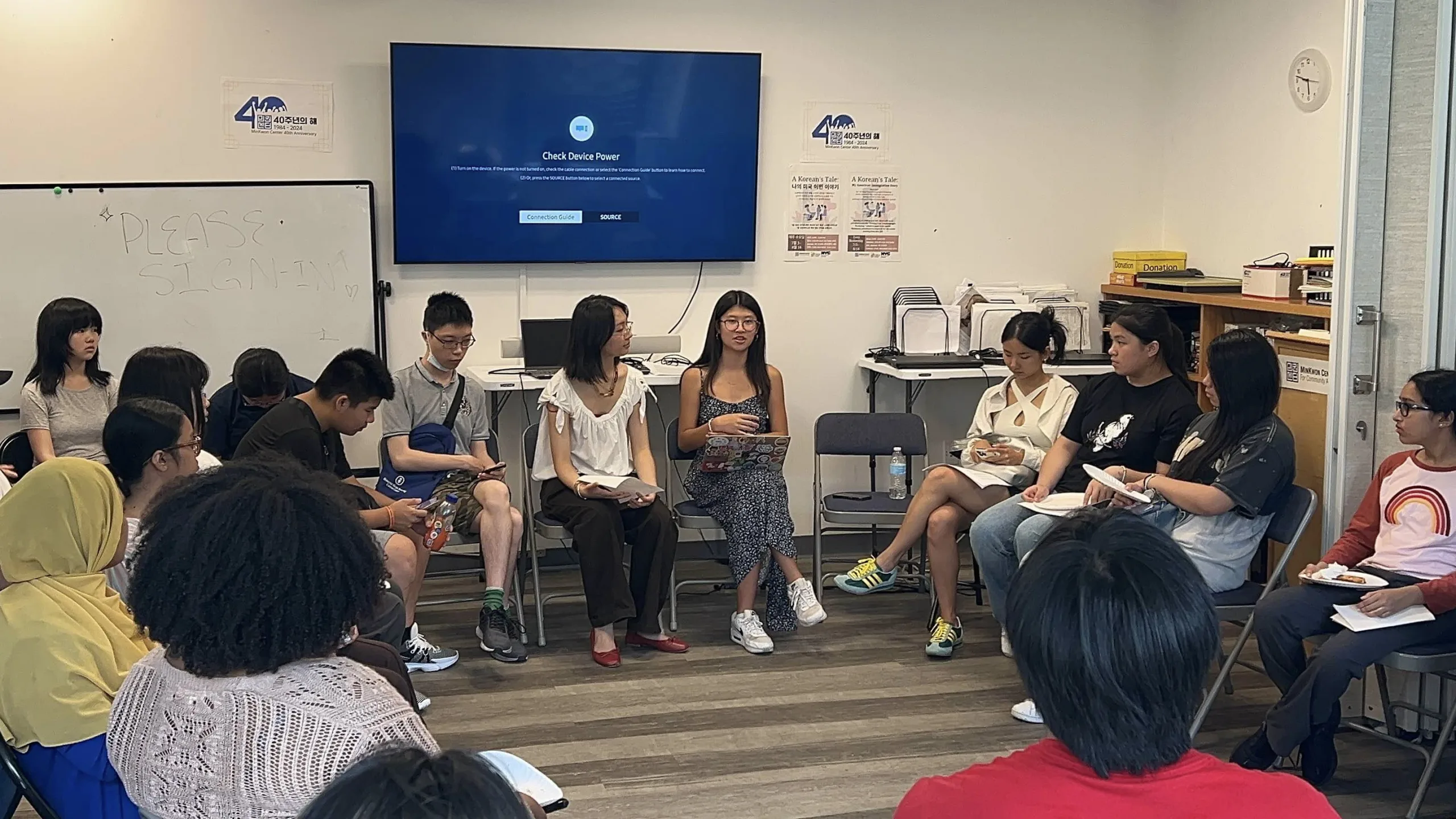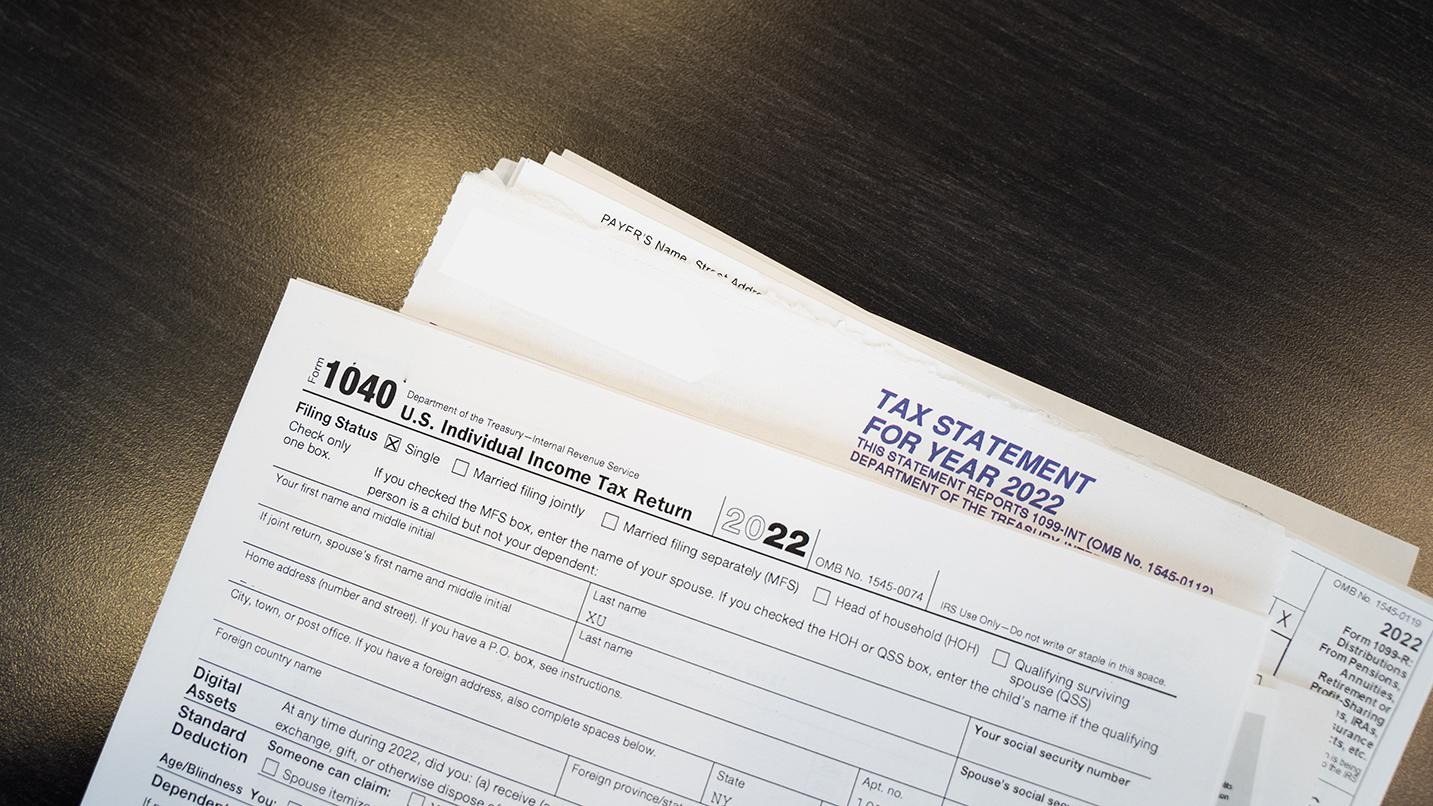With the 2024 election 73 days away, Asian community organizations in New York City are working in full swing to increase the turnout rate of Asian voters, but especially Asian youth who continue to be the least likely to vote across all age groups within the community.
According to APA Voice’s 2024 report, while the number of Asian voters in New York City has nearly doubled since 2012, Asian voters have participated at lower rates than the general population in multiple election years. In the 2020 general election, the participation rate among Asian American voters in New York State was 57%, compared to 68% for the general population. This disparity is even more pronounced among young voters, with only 55% of Asian voters aged 18 to 24 participating in the general election.

On Aug. 10, Angelreana Choi, a fellow at the Flushing-based immigrant rights organization MinKwon Center, led the first two-day online training session for incoming student campus coordinators. Choi is also the co-founder and program coordinator of the Asian Student Civic Engagement Task Force (ASCET), which operates under the civic engagement organization APA Voice.
The coordinators will lead civic engagement initiatives and increase voter mobilization at Stony Brook University, Cornell University, and the University of Rochester within their congressional districts and local Asian American communities. The six campus coordinators, who are students at universities in upstate New York and Long Island, are part of APA Voice’s expansion into growing civic participation efforts. “Historically, a lot of APA Voice’s work has been based in New York City,” said Angelreana Choi. “We wanted to expand our efforts to upstate New York and Long Island.” She added that ASCET, in particular, aims to mobilize young Asian voters on college campuses across New York in areas that have not been as engaged as those in the city.
Also Read: First-Time Voting for Naturalized Citizens, Explained
For its pilot run, Choi explained that ASCET recruited campus coordinators in Congressional Districts 1, 19, and 25 to increase the turnout of young Asian voters. Many of the districts have seen significant increases in the Asian voter population, yet they also face challenges such as low turnout rates among young Asian voters, narrow margins of victory in previous elections, or substantial changes in their electoral maps due to redistricting.
Gwen Phagnasay Le, youth organizer at the MinKwon Center for Community Action said there are a number of reasons Asian youth might not likely to vote “One might be that young people are not educated from a young age on not necessarily the importance of voting, but more like the logistical details of voting,” they said.
Le observed Asian youth are often preoccupied with school and caring for their parents, unlike older adults who are more familiar with the political landscape through years of exposure. “Young people might need extra help researching specific policies and candidates for a given election year,” they said.
Also Read: Green Card Holders Are Able to Vote in NYC Elections
Justin Chen, who is from Albany and turned 18 this year, decided to vote for the first time in the presidential election. He mentioned that many young voters are not heavily involved in voting because they don’t know where to vote around their schools and are also occupied by schoolwork. “Most of them go to college, and not very many voting places that they have access to or they know about,” Chen explained.
Chen also noted that some of his Asian friends who are more conservative and live in a liberal areas don’t tend to vote because they feel their votes don’t matter because of the dominance of the Democratic Party. “I have different viewpoints,” Chen said. “I believe everyone who can vote should vote because every single vote matters. I feel like I can make a difference when I vote, and I feel like my voice is heard.”
He pointed out that a lack of civic engagement and language barriers might contribute to the low voter turnout among Asians in general. “Many Asian seniors don’t really know the candidates running because they don’t speak English well or can’t read well, so they don’t really know who they’re voting for and what policies they support.”
Le mentioned that nonprofits can assist by educating young people about upcoming elections and providing the necessary information to make informed voting decisions. According to Choi, the campus coordinators will leverage their campus networks to engage with the community by registering voters, creating voter guides, and conducting candidate surveys to educate and mobilize young voters.
Le also noted that addressing the broad range of community issues, such as gentrification and displacement, can be overwhelming for students. The issues can either motivate them to engage in civic action or leave them feeling discouraged and powerless.
“We come face to face with the reality of poverty every day, and we come face to face with the lack of protection for immigrants, undocumented people, for poor people,” said Le. “It could be hard when you realize you’re up against big corporations that just want to make another dollar off of you.”
“A lot of young people feel like their votes don’t matter and that they can’t change anything,” said a 22-year-old Asian voter in Chinatown who wished to remain anonymous. “We have seen that Chinatown becomes smaller and smaller, and it feels like there’s nothing we can do about it.”
Despite the challenges, APA Voice sees 2024 as a pivotal year for voter registration and other forms of civic engagement within Asian communities in New York State. The number of registered Asian voters has increased annually since 2012, with the most significant spikes occurring during presidential election years. The registered Asian voter population grew by 58,773 in 2016 and by 57,101 in 2020, according to its research.
Le said they aim to register 2,000 young people aged 18 to 29 as voters. Working with over 20 Asian American community organizations, the coalition also plans to conduct GOTV (Get Out the Vote) training and voter education workshops to annually teach 350 young people the basics of civic engagement. On Sept. 28, the MinKwon Center will host a Youth Vote Festival at Jackson Heights, providing an engaging and fun environment to introduce civic participation to young people.
Mae Li, Executive Director of the Chinese Progressive Association, said that the organization is part of APA Voice and collaborates with many Asian community groups to increase voter turnout. On Sept. 17, National Voter Registration Day, they will host several voter registration events across three boroughs.
Also read: Organizations Serving Chinese Immigrants in New York
As for areas and factors that are crucial for influencing Asian voter turnout through civic engagement and education in NYC, Sandra Choi, civic participation director at the MinKwon Center for Community Action, said Central Queens has a fast-growing Southeast Asian community, including areas like Little Manila and Little Thailand. Southeast Queens in areas like Richmond Hill has a vibrant South Asian and Indo-Caribbean community.
Angelreana said one of their strategies to increase Asian voter turnout is focusing on multigenerational engagement. “I think the youth in our communities really have a good grasp on what their community values are, how different people in their communities navigate different issues, and they are like the gateway to our communities,” said Angelreana. She noted that young people, especially those with immigrant backgrounds, are adept at approaching different demographics. They often play a crucial role as navigators or translators for their families, whether convincing immigrant family members or peers from diverse backgrounds to vote.
To inspire the AAPI youth vote and engage politically, Le notes it’s crucial to connect through personal struggles, such as issues with rent or zoning laws, to broader political decisions. “I think what my philosophy with working with young people is that it’s really important to make the personal very political,” said Le.
Le said many students, particularly those in marginalized communities like Flushing, face unique challenges related to their low-income and immigrant backgrounds. “Just telling young people to vote because it’s your responsibility isn’t enough,” Le added. They hoped that by helping young people understand the impact of policies on their lives, they would make political engagement a core part of their identity.
Le noted that immigration remains a significant issue for many young AAPI voters because it directly affects their identity and experiences. Many understand the hardships of being an immigrant through their parents or their own undocumented status, facing barriers related to rights, benefits, and education. “I think immigration is a really huge thing that turns out a lot of Asian American youth, and I think it’s an issue that they’re definitely willing to go to the ballot for.”














